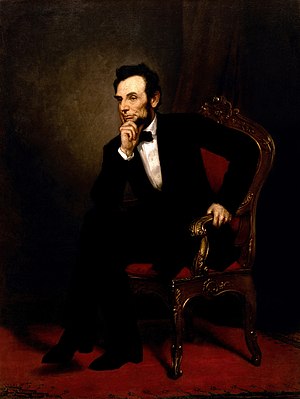 |
| John C. Fremont |
Today John C. Frémont issued a proclamation declaring the slaves in his military district free. Frémont was a famous explorer, and earned the name “The Pathfinder” for mapping a trail across the Rocky Mountains. Although he was from Georgia, he was the first presidential candidate of the Republican party. The Republican party was founded on the idea of opposing slavery. He lost the election, but four years later Lincoln won the election. Frémont was appointed a Major General, and appointed commander of the Department of the West, with his attention focused on the fighting in Missouri. Today Frémont issued a proclamation declaring martial law in Missouri. This was the most controversial part:
All persons who shall be taken with arms in their hands, within these lines, shall be tried by Court Martial, and, if found guilty, will be shot. The property, real and personal, of all persons in the State of Missouri, who shall take up arms against the United States, or who shall be directly proven to have taken active part with their enemies in the field, is declared to be confiscated to the public use, and their slaves, if any they have, are hereby declared free men.
 |
| Abraham Lincoln |
The most debated part was saying the Confederates' slaves would be freed. As we will see, Lincoln was not ready for this. Although he would release a similar Emancipation Proclamation less than a year and a half later, at the time he wrote:
You speak of [Fremont's proclamation] as being the only means of saving the government. On the contrary it is itself the surrender of the government. Can it be pretended that it is any longer the government of the U.S.—any government of Constitution and laws,—wherein a General, or a President, may make permanent rules of property by proclamation?
I do not say Congress might not with propriety pass a law, on the point, just such as General Fremont proclaimed ...What I object to, is, that I as President, shall expressly or impliedly seize and exercise the permanent legislative functions of the government.




0 comments:
Post a Comment